LIFESTYLE
30 Effortless Ways to Make a Difference for Planet Earth
Published
1 week agoon

Shutterstock
Caring for planet Earth doesn’t require monumental efforts; small, everyday actions can collectively create a big impact. From conserving energy at home to making mindful choices about transportation and shopping, we can all contribute to a healthier, more sustainable world. These simple steps not only protect the environment but also save money and enhance your quality of life. Whether you’re swapping single-use items for reusable alternatives or planting a tree in your backyard, each action matters. Let’s explore 30 easy ways you can make a positive difference for our planet today.
Turn off the Lights
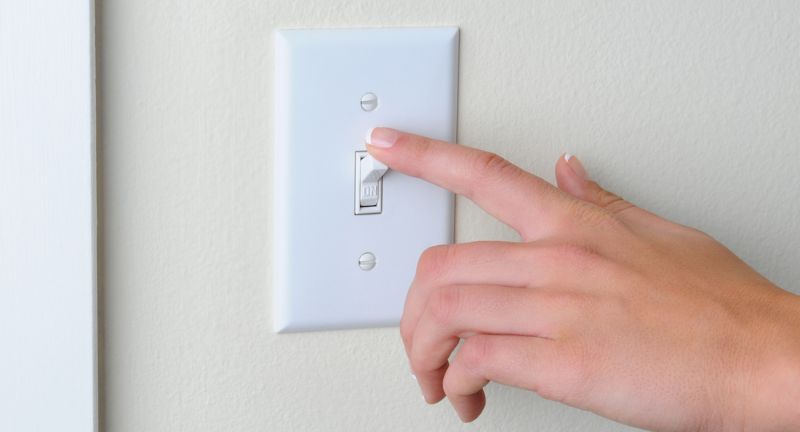
Shutterstock
One of the easiest ways to conserve energy is to turn off lights when you leave a room. This simple habit can significantly reduce your household’s electricity consumption and help lower your energy bill. By switching off lights during daylight hours or in spaces not in use, you prevent unnecessary energy waste. Small changes like this add up over time, making a meaningful impact on the planet.
Unplug Devices
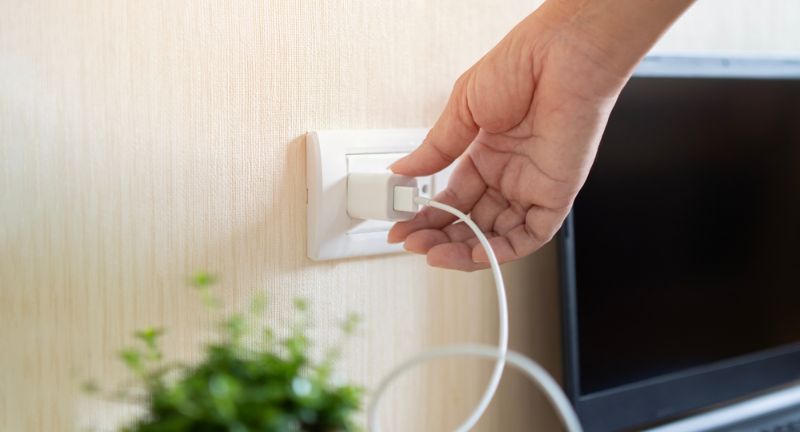
Shutterstock
Many electronic devices continue to draw power even when not in use, which is often referred to as phantom or standby power. By unplugging chargers, small appliances, and other electronics when not in use, you can eliminate this wasted energy. Investing in a power strip with an off switch is another efficient solution. This small action helps conserve energy, reduces your electric bill, and decreases overall environmental impact.
Use Energy-Efficient Bulbs

Shutterstock
Replacing traditional incandescent bulbs with LED or energy-efficient bulbs is a great way to reduce energy use. These bulbs last much longer and use significantly less electricity, saving you money over time. LEDs are also safer as they generate less heat, lowering the risk of fire. By making this switch, you contribute to a greener future and more sustainable living.
Adjust Thermostats

Shutterstock
Adjusting your thermostat a few degrees can have a significant effect on your energy consumption. Lowering the heat in winter or raising the air conditioning temperature in summer, especially when you’re not home, can save a lot of energy. A programmable or smart thermostat makes it even easier to optimize your energy usage. Small adjustments help reduce carbon emissions and save you money on your utility bills.
Recycle Properly

Shutterstock
Recycling helps reduce waste and conserve natural resources, but it’s essential to do it correctly. Take the time to learn your local recycling rules to ensure you’re sorting materials like paper, plastic, glass, and metal appropriately. Rinse out containers and avoid contaminating recycling bins with food waste or non-recyclable items. Proper recycling reduces landfill waste and ensures materials are reused in a sustainable way.
Compost

Shutterstock
Composting is a natural way to recycle food scraps and yard waste, turning them into nutrient-rich soil. Start a compost bin or pile in your backyard or consider using a countertop composter if you live in an apartment. Composting not only reduces landfill waste but also enriches your garden soil without the need for chemical fertilizers. It’s an easy and rewarding step towards living more sustainably.
Choose Reusable Items

Shutterstock
Swapping disposable items for reusable alternatives is a simple yet impactful habit. Opt for reusable water bottles, coffee cups, and shopping bags to cut down on single-use plastics. Investing in durable kitchen items like cloth towels and glass food containers also reduces waste. These small changes add up and help minimize the plastic pollution problem facing our planet.
Fix Leaks

Shutterstock
Leaky faucets and pipes may seem like minor issues, but they can waste significant amounts of water over time. Fixing leaks promptly saves water and prevents unnecessarily high water bills. Even small drips can add up to gallons of wasted water every day. Addressing these issues is a quick and easy way to help conserve this precious resource.
Use Natural Cleaners

Shutterstock
Switching to natural or homemade cleaners is an eco-friendly way to reduce chemical use in your home. Ingredients like vinegar, baking soda, and lemon are effective and safe alternatives to commercial products. These natural options are better for the environment and your health. By choosing eco-friendly cleaners, you help keep harmful chemicals out of waterways and ecosystems.
Wash in Cold Water

Shutterstock
Washing your laundry in cold water is an easy way to save energy and lower your utility bills. Cold water is just as effective for most loads and is gentler on fabrics, helping your clothes last longer. It’s a simple switch that reduces the energy required to heat water, making a positive impact on the environment. Pair this habit with air-drying clothes when possible for even more savings.
Reduce Food Waste
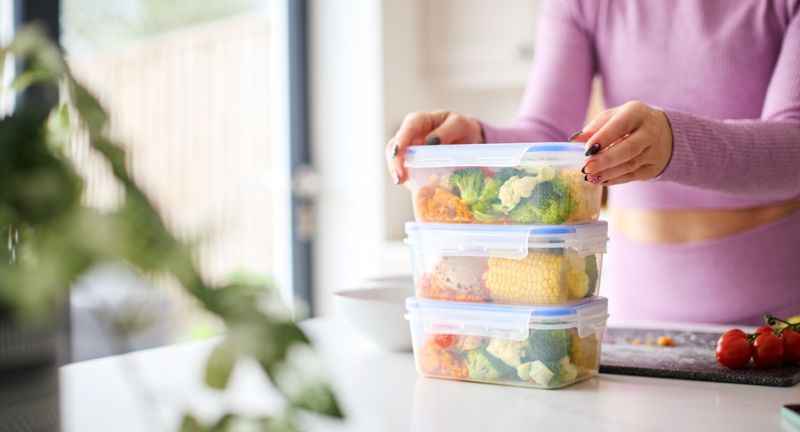
Shutterstock
Reducing food waste starts with mindful meal planning and portion control. Use leftovers creatively or freeze them for later to avoid throwing food away. Compost scraps that can’t be consumed to give them a second life as nutrient-rich soil. Wasting less food saves money and reduces the methane emissions associated with decomposing organic waste in landfills.
Buy Local

Shutterstock
Supporting local farmers and producers helps reduce the carbon footprint associated with transporting goods over long distances. Shopping at farmers’ markets also ensures fresher, seasonal produce that often uses less packaging. Additionally, buying local strengthens your community and supports small businesses. It’s a win-win for the planet and your neighborhood economy.
Go Meatless Once a Week

Shutterstock
Skipping meat for one day each week is a powerful way to lower your carbon footprint. Meat production requires significant resources like water, land, and energy, and reducing consumption helps conserve these. Try experimenting with plant-based meals or exploring vegetarian cuisines. Going meatless occasionally is good for the planet and can introduce you to delicious, healthy food options.
Avoid Plastic Wrap
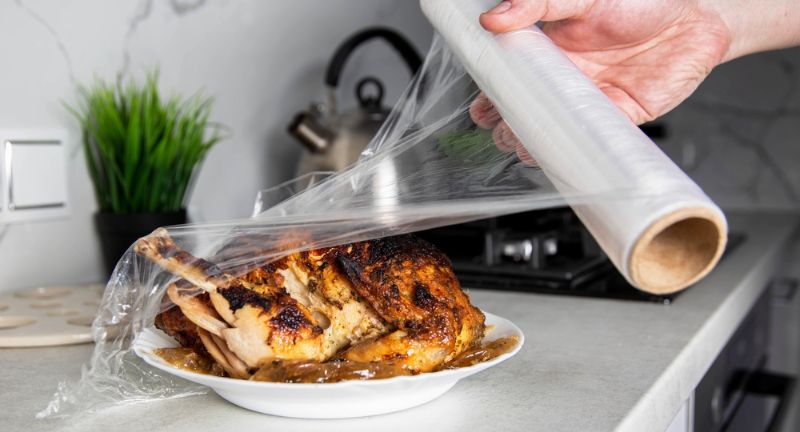
Shutterstock
Plastic wrap is a single-use item that contributes to the growing plastic waste problem. Instead, consider reusable alternatives like beeswax wraps, silicone lids, or glass containers. These options are not only environmentally friendly but also more cost-effective over time. By avoiding plastic wrap, you reduce the amount of plastic that ends up in landfills and oceans.
Bring Your Own Bags

Shutterstock
Reusable shopping bags are a simple yet effective way to cut down on plastic waste. Keep a few bags in your car or near your front door so you’ll always have them handy. Many stores now encourage the use of reusable bags, often offering small discounts for bringing your own. This habit helps reduce the billions of plastic bags that pollute our planet each year.
Walk or Bike
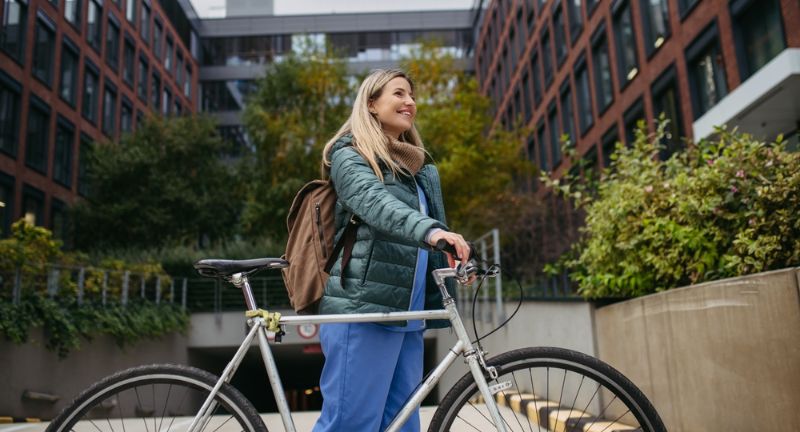
Shutterstock
Choosing to walk or bike instead of driving for short trips is a fantastic way to reduce your carbon footprint. Not only does it help the environment, but it’s also great for your health. Walking or biking eliminates emissions from cars and contributes to cleaner air in your community. Plus, it’s a fun and eco-friendly way to explore your surroundings.
Carpool

Shutterstock
Carpooling with friends, family, or coworkers reduces the number of vehicles on the road. This helps lower greenhouse gas emissions and decreases traffic congestion. Sharing rides is also a cost-effective option, as fuel and maintenance costs can be split among passengers. By carpooling, you make a significant contribution to reducing your environmental impact.
Public Transit

Shutterstock
Using public transit like buses or trains is a highly efficient way to reduce your carbon footprint. It not only saves fuel but also decreases wear and tear on your vehicle. Public transit systems are designed to move large numbers of people efficiently, resulting in fewer emissions per person compared to individual cars. Embracing this mode of transportation contributes to a more sustainable urban environment.
Drive Smart
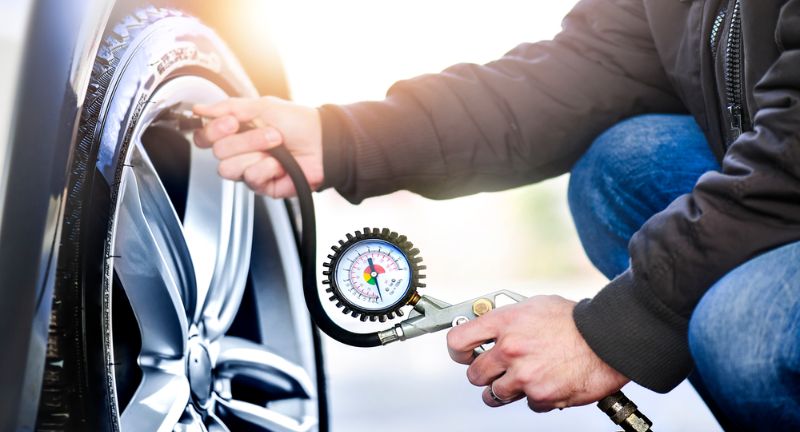
Shutterstock
Driving efficiently can significantly reduce your vehicle’s environmental impact. Simple actions like avoiding idling, maintaining a steady speed, and keeping your tires properly inflated help improve fuel efficiency. Regular vehicle maintenance also ensures your car runs cleanly and efficiently. These practices not only help the planet but also save you money on gas and repairs.
Combine Errands

Shutterstock
Planning your errands strategically can save time, fuel, and energy. Combine multiple errands into one trip instead of making several separate outings. This reduces the number of miles driven, which helps lower emissions and saves money on gas. Small adjustments to your routine can lead to a big positive impact on the environment.
Plant a Tree
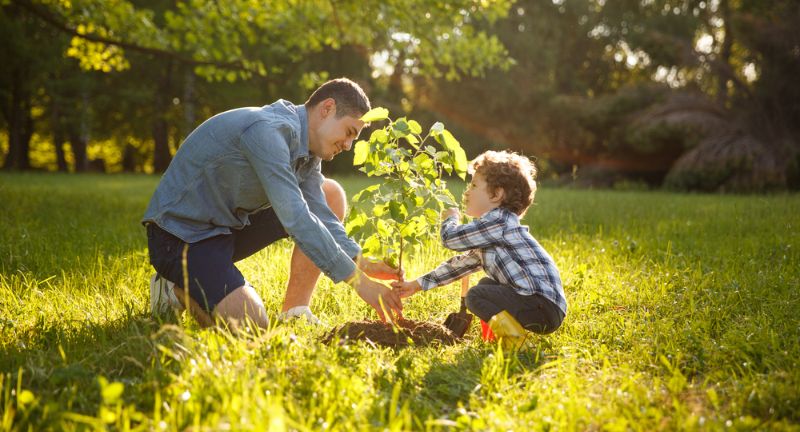
Shutterstock
Planting a tree is one of the most impactful ways to help the environment. Trees absorb carbon dioxide, provide oxygen, and create habitats for wildlife. They also help reduce energy costs by providing shade in the summer and windbreaks in the winter. By planting a tree, you’re making a lasting contribution to the health of the planet.
Garden Sustainably

Shutterstock
A sustainable garden uses native plants that require less water, fertilizer, and pesticides. Native plants are adapted to your local environment and support local wildlife, such as pollinators and birds. Mulching and composting can further enhance soil health while conserving water. A sustainable garden not only beautifies your home but also helps protect ecosystems.
Pick Up Trash

Shutterstock
Picking up trash in your neighborhood or during outdoor activities helps protect wildlife and beautify public spaces. Even a small effort to clean up litter can prevent harmful materials from ending up in waterways or ecosystems. Organize or join community clean-up events to make a bigger impact. This simple act of kindness towards the planet inspires others to take similar action.
Avoid Harmful Chemicals
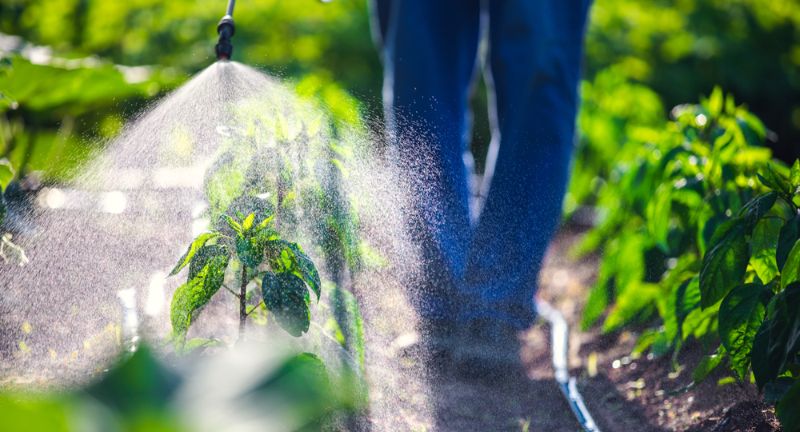
Shutterstock
Using natural alternatives for fertilizers and pest control can significantly reduce environmental harm. Harmful chemicals often end up polluting water sources and damaging local ecosystems. Opt for eco-friendly gardening products or DIY solutions made from household items like vinegar or garlic. This small change can protect the health of plants, animals, and your family.
Protect Wildlife
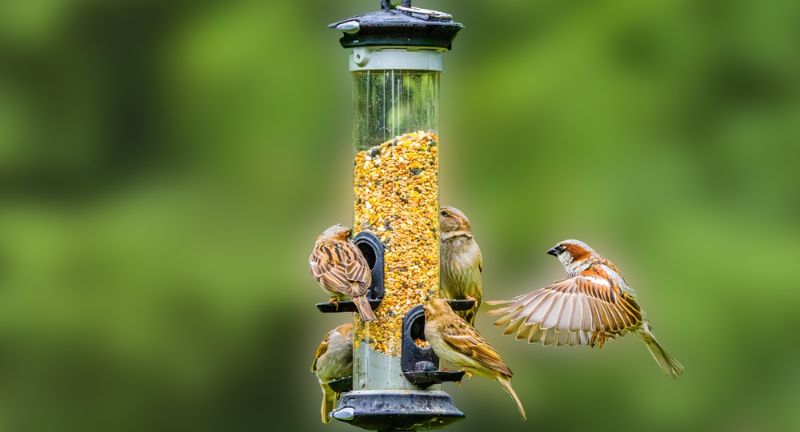
Shutterstock
Protecting wildlife starts with creating habitats in your backyard, such as bird feeders, bat houses, or bee hotels. Avoid using pesticides and choose native plants that support local species. Be mindful of not disturbing animals or their habitats during outdoor activities. These small efforts contribute to biodiversity and help wildlife thrive in a changing world.
Save Water

Shutterstock
Conserving water can be as simple as turning off the tap while brushing your teeth or fixing a leaky faucet. Install low-flow fixtures and use rain barrels to collect water for outdoor use. Avoid watering your lawn during peak sun hours to minimize evaporation. Small changes in water usage can lead to significant savings and help protect this vital resource.
Choose Reusable Bottles

Shutterstock
Using reusable water bottles is an easy way to reduce plastic waste. Single-use plastic bottles often end up in landfills or as litter in oceans, harming marine life. Reusable bottles made from stainless steel or glass are durable, eco-friendly, and often keep beverages colder or hotter for longer. By making this switch, you can save money and help protect the planet.
Buy in Bulk
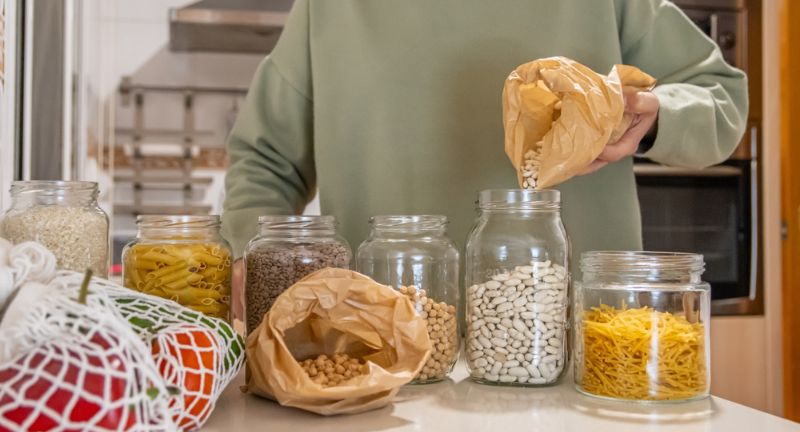
Shutterstock
Buying in bulk reduces packaging waste and is often more economical. Items like grains, nuts, and spices can be stored in reusable containers for convenience. Many stores now offer bulk sections that allow you to purchase exactly the amount you need. This practice minimizes waste and supports a more sustainable shopping habit.
Support Eco-Friendly Brands

Shutterstock
Choosing to buy from eco-friendly brands supports companies that prioritize sustainability. Look for certifications like Fair Trade, organic, or cruelty-free when shopping. These brands often use renewable resources, ethical labor practices, and environmentally friendly packaging. Supporting such companies encourages the market to shift towards more sustainable practices.
Educate Others
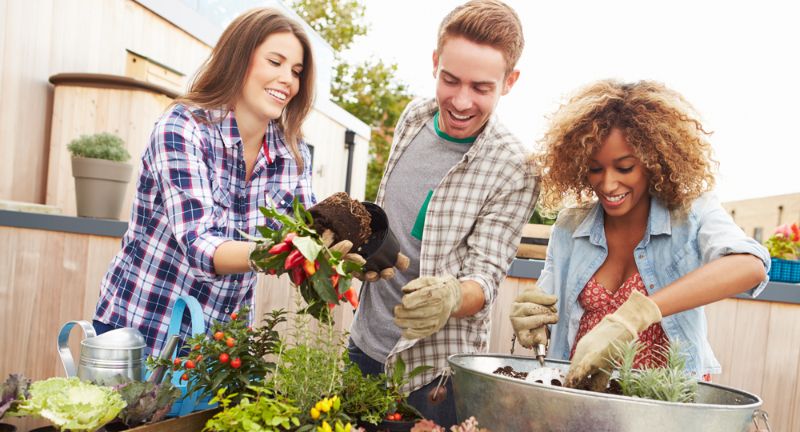
Shutterstock
Sharing knowledge about sustainable practices with friends and family helps spread awareness. Small conversations about reducing waste, conserving energy, or protecting wildlife can inspire others to take action. Use social media platforms to amplify eco-friendly tips and initiatives. Education is a powerful tool to create a ripple effect for environmental change.
Conclusion

Shutterstock
Taking care of our planet starts with small, mindful choices that can create lasting change. By incorporating even a few of these simple actions into your daily routine, you become a part of the solution for a healthier and more sustainable world. Every effort, no matter how small, contributes to reducing pollution, conserving resources, and protecting our environment for future generations. Together, we can make a significant impact and inspire others to join the movement. Let’s commit to these easy changes and help Earth thrive for years to come.
ADVERTISEMENT - CONTINUE BELOW
About Amazing Animals+
Welcome to Amazing Animals+, a sanctuary online for animal lovers and enthusiasts around the globe. Our passion for the animal kingdom and its vast diversity fuels our mission to educate, inspire, and foster a deeper connection between humans and animals. From the majestic to the microscopic, our platform offers an extensive array of content that explores the wonders of animal life. Whether you're seeking insight on caring for your furry friend, looking to learn about wildlife conservation, or simply want to enjoy captivating stories and photographs of animals in their natural habitats, Amazing Animals+ is your gateway to the animal world. Join us in our journey to celebrate and protect our planet's incredible biodiversity.
ADVERTISEMENT
ADVERTISEMENT


ANIMALSJan
26 Animals That Have The Cutest Babies
The animal kingdom is replete with adorable infants, each bringing a unique charm to the biodiversity of our planet. From...


NEWSJan
Do Whales Have Dialects? 25 Reasons They Might
Have you ever wondered if whales might speak with their own accents under the sea? For decades, scientists have studied...


NEWSJan
24 Common Misconceptions About Hyenas
Hyenas have long been misunderstood, often associated with eerie calls and sneaky behavior. Their reputation for being cowardly scavengers has...


ANIMALSJan
The Truth About Storks and Baby Deliveries
Get ready to meet one of nature’s most peculiar birds, the stork! These birds have long legs and a knack...






